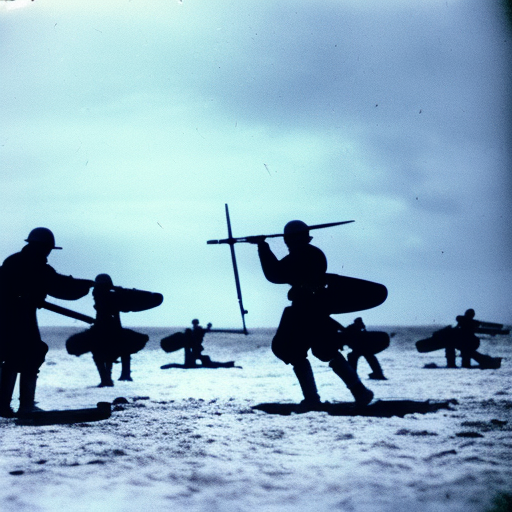Battle of Texel: A Decisive Naval Conflict in the First Anglo-Dutch War
The Battle of Texel, fought on August 21, 1673, was a significant naval engagement during the First Anglo-Dutch War. It took place near the island of Texel, off the coast of the Netherlands. The battle was a decisive victory for the Dutch Republic, led by Admiral Michiel de Ruyter, over the English fleet commanded by Admiral Edward Spragge.
Background: The First Anglo-Dutch War
The First Anglo-Dutch War, which lasted from 1652 to 1654, was a conflict between the Dutch Republic and the Commonwealth of England. The war primarily revolved around trade and maritime dominance. The English sought to challenge Dutch supremacy in global trade, leading to several naval confrontations.
The Naval Powerhouses: England and the Dutch Republic
Both England and the Dutch Republic were renowned naval powers during the 17th century. The English navy, under the leadership of Admiral Spragge, had a larger fleet and superior firepower. However, the Dutch navy, commanded by Admiral de Ruyter, was known for its tactical expertise and skilled seamen.
The Battle: Dutch Strategy and English Mistakes
In the summer of 1673, the Dutch Republic launched a daring offensive against the English fleet. Admiral de Ruyter devised a plan to lure the English into a trap near the island of Texel. He positioned his fleet in a defensive formation, with the intention of drawing the English ships into shallow waters where their larger vessels would be at a disadvantage.
The English fleet, unaware of the Dutch trap, sailed towards Texel. Admiral Spragge made a critical mistake by dividing his forces, allowing the Dutch to engage them in smaller groups. This fragmentation weakened the English fleet’s cohesion and made it vulnerable to the Dutch tactics.
The Dutch Triumph: Superior Tactics and Determination
As the battle commenced, the Dutch fleet unleashed a barrage of cannon fire on the English ships. The Dutch sailors, renowned for their marksmanship, targeted the English masts and rigging, disabling several vessels. The English, caught off guard by the ferocity of the Dutch attack, struggled to mount an effective defense.
Admiral de Ruyter’s strategy of engaging the English in shallow waters proved successful. The Dutch ships, which were smaller and more maneuverable, were able to outmaneuver their English counterparts. The English ships became grounded or ran aground, further diminishing their fighting capabilities.
Aftermath: Dutch Victory and the End of the First Anglo-Dutch War
The Battle of Texel resulted in a resounding victory for the Dutch Republic. The English fleet suffered heavy losses, with several ships captured or destroyed. Admiral Spragge himself was killed during the battle. In contrast, the Dutch fleet emerged relatively unscathed, solidifying their naval dominance.
The defeat at Texel marked a turning point in the First Anglo-Dutch War. The English, demoralized and facing financial difficulties, were forced to sue for peace. The war officially ended in 1674 with the signing of the Treaty of Westminster, which recognized Dutch maritime supremacy and restored trade relations between the two nations.
Legacy: The Battle of Texel’s Impact on Naval Warfare
The Battle of Texel showcased the importance of tactical maneuvering and marksmanship in naval warfare. It demonstrated that a smaller fleet, when led by a skilled commander and employing innovative strategies, could overcome a larger and more powerful adversary. The battle also highlighted the vulnerability of larger ships in shallow waters, influencing future naval designs.
In conclusion, the Battle of Texel was a decisive victory for the Dutch Republic over the English fleet during the First Anglo-Dutch War. The Dutch navy, led by Admiral de Ruyter, employed superior tactics and took advantage of English mistakes to secure a resounding triumph. The battle marked a turning point in the war and solidified Dutch maritime supremacy.












